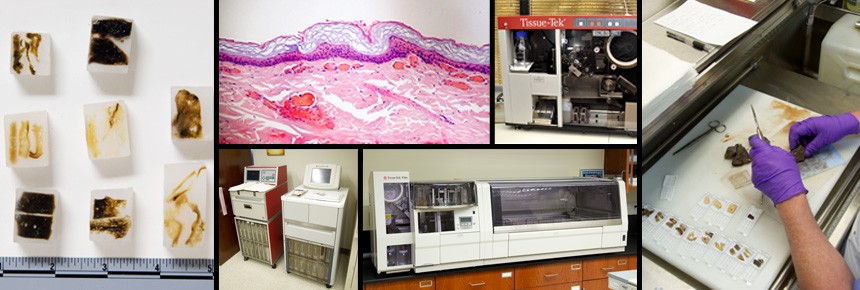About the Tarrant County Medical Examiner
Mission Statement
The mission of the Tarrant County Medical Examiner's Office is to serve its citizens by protecting the public's health and safety, providing high quality forensic death investigations and independent autopsy services, and participating impartially in the Criminal Justice system.
Our office accomplishes this mission by:
- Maintaining and promoting the highest professional standards in the fields of medicolegal death investigations and forensics;
- Ensuring that forensic death investigations are carried out in an expeditious and professional manner, with sensitivity and compassion to decedents' loved ones during their time of grief;
- Providing timely, accurate and legally sound determinations of cause and manner of death;
- Enhancing public health and safety by increasing awareness of preventable deaths;
- Playing a vital role as part of the government's response team for Emergency Management services;
- Coordinating with other public health and safety officials on Mass Casualty incident planning and preparation.
We promote a culture of teamwork, continuous improvement and education, and strive to protect the interest of decedents, their loved ones and the communities we serve.

In the United States of America, there are three systems of medicolegal death investigation including the Coroner system, Justice of the Peace system and Medical Examiner system. Some states, such as Texas, have a hybrid system that includes both a coroner or the Justice of the Peace and Medical Examiner systems.
The Tarrant County Medical Examiner's Office is an example of such a system. Serving four counties (Tarrant, Parker, Denton and Johnson) in the state of Texas, with a combined population exceeding three million, it is governed and legislated by Section 49.25 of the Texas Code of Criminal Procedure. The Tarrant County Medical Examiner's Office attempts to identify and explain both the cause and manner of death in cases where the death has occurred unattended or unexplained, or where the death is due to unnatural causes.
The Tarrant County Medical Examiner's Office is comprised of two major divisions: Medical Examiner, and Forensic Laboratory Services.
The Medical Examiner division investigates cause and manner of death through the combined efforts of Forensic Death Investigations, Forensic Pathology, Morgue Services/Forensic Photography, Human Identification/Anthropology, and Histology. Also part of the ME division are the Administrative, Quality Management, Records, and Vital Statistics sections.

Forensic Death Investigations
One of the primary purposes of the Medical Examiner’s Office is to conduct inquests or investigations into the cause and manner of deaths occurring within Tarrant, Denton, Johnson and Parker Counties. The Tarrant County Medical Examiner’s Office staffs an around-the-clock investigative division responsible for initiating a formal response to all reportable cases.
Forensic investigators are trained in a multi-disciplinary capacity and possess unique education and abilities, including knowledge of criminal investigation techniques, relevant aspects of forensic medicine, crime scene processing skills, and maintenance of case integrity. Additionally, each investigator is capable of conducting effective interviews, locating and notifying next-of-kin, and interacting with law enforcement personnel.
Once a jurisdictional death is reported, an investigator attends the scene or hospital where the death occurred. After conducting the initial investigation, an investigator prepares a detailed case report containing biographical data on the decedent, a narrative of the events leading up to the time of death or discovery of the decedent, and a summation of all investigative analyses and leads. Additionally, investigators coordinate with hospitals, physicians, law enforcement agencies, employers, families, and other pertinent sources to gather information that might be of value to the determination of both a decedent's positive identification as well as the cause and manner of death.

Forensic Pathology
Medical examiners are physicians specially trained in forensic pathology to determine cause and manner of death of individuals who die suddenly, unexpectedly, or violently. The presence or absence of disease, injury, or poisoning is ascertained by examination, as well as evaluating collected evidence and historical and law enforcement investigative information. Medical examiners utilize data obtained from traditional medicine, pathology, toxicology, radiology, wound ballistics, trace evidence, forensic serology and DNA technology to establish the cause and manner of death.

Morgue Services/Forensic Photography
The autopsy examination is accomplished through the teamwork of the Forensic Pathologist and a team of Forensic Autopsy Technicians. Forensic Autopsy Technicians assist the pathologist with evisceration, photography, radiographic exams, measurements, procurement of biological samples, evidence packaging and documentation, and release of examined bodies to funeral homes, among other responsibilities. Technicians are tasked also with keeping the morgue areas clean and stocked with adequate supplies.
All bodies brought to the morgue are received in an area designed to maintain the utmost privacy during transfer. Individual bodies are entered into the office computer system, assigned a unique case number and fitted with identification tags bearing the case number and decedent's name. Three refrigeration units are designated to hold incoming, completed and decomposed infectious cases separately as a safeguard to prevent a body from being released prior to examination. Once an examination is complete, the body is released to the family's designated funeral home.
When the new Medical Examiner facility was built, a design concept of a centralized morgue separated from other activities of the facility was utilized. The work area was developed to promote an easy flow of activity. Instead of a single exam room or a fixed exam table, the area was built utilizing nine fixed, wall-mounted stations to which bodies could be transported via portable gurneys. The gurneys are designed to serve as the body transportation table, holding tray and exam table. Using this type of equipment reduces unnecessary movement of the body, thus diminishing the possibility of employee injury. Additionally, the morgue contains separate morgue suites to accommodate major and biohazardous cases.
A fully equipped forensic photography laboratory was added to the Medical Examiner's Office in 1994. By 2005 the laboratory had replaced all film processing with digital photography. In addition to more traditional photography methodologies, the lab is capable of making photographs utilizing ultraviolet and infrared techniques. Image enhancement can also be performed.

Human Identification/Anthropology
The identification of unidentified remains is a primary function of the Tarrant County Medical Examiner’s Office, which is managed by the Human Identification Department. The department consists of two full-time forensic anthropologists and two full-time fingerprint examiners, and contracts forensic odontology services. Unidentified remains are examined systematically using scientific modalities such as fingerprint comparison, comparative radiography, dental comparison, DNA technology, and biological profile construction through forensic anthropological analyses. Staff use investigatory skills, in coordination with Forensic Death Investigations, making use of local, state and national databases in an effort to establish a positive identity for the decedent and provide answers to families.
When a decedent is unknown, fingerprint analysis is the first avenue to establishing an identification. The fingerprint examiners will attempt to obtain fingerprints through direct printing, or utilize advanced techniques such as casting. Any presence of friction ridge prints will be used to attempt to establish an identification through direct comparison of postmortem impressions with known friction skin records including fingerprints, palm prints, and sole (foot) prints to known prints obtained from State and/or FBI databases. Fingerprints are also searched through AFIS or submitted to the FBI and Homeland Security Biometric Support Center-West for out-of-state searches.
When remains are in an advanced stage of decomposition and/or skeletonized, the forensic anthropologists examine those remains to estimate sex, age, stature, and population affinity in order to provide leads for identification. If there is a suspected identity, radiographic (x-ray) comparisons may be made to help establish a scientific identification. The forensic anthropologists also consult with the medical examiners in cases of known or suspected skeletal trauma or pathology. The forensic anthropologists are additionally available to assist the forensic death investigators at scenes where bones may be found, clandestine burials, fatal fires, or mass disasters. The Tarrant County Medical Examiner's Office was the first in Texas to provide in-house forensic anthropology services.

Forensic Histology
Histological examination is the microscopic study of tissues and cells, and is used to assist the pathologists in determining the cause of death. The Forensic Histology section employs two full-time certified histologists who prepare and stain tissue collected during the examination procedure by the pathologist. After processing and sectioning the tissue, the histologist submits the completed slides to the forensic pathologist for examination. Some cause-of-death determinations rely solely upon the examination of a decedent’s tissues and organs, and the histology section plays a vital role in helping the physician with identifying disease processes and certain tissue changes that occur in response to trauma, lifestyle habits, and other variables.



Accreditation
The Medical Examiner division is accredited by National Association of Medical Examiners (NAME) and Accreditation Council for Graduate Medical Education (ACGME).
The Forensic Laboratory Services division is accredited by ANAB in Forensic Testing to the requirements of ISO/IEC 17025:2017 and ANAB 3125, as well as by Texas Forensic Science Commission.


 TARRANT COUNTY, TX
TARRANT COUNTY, TX

 Medical Examiner
Medical Examiner